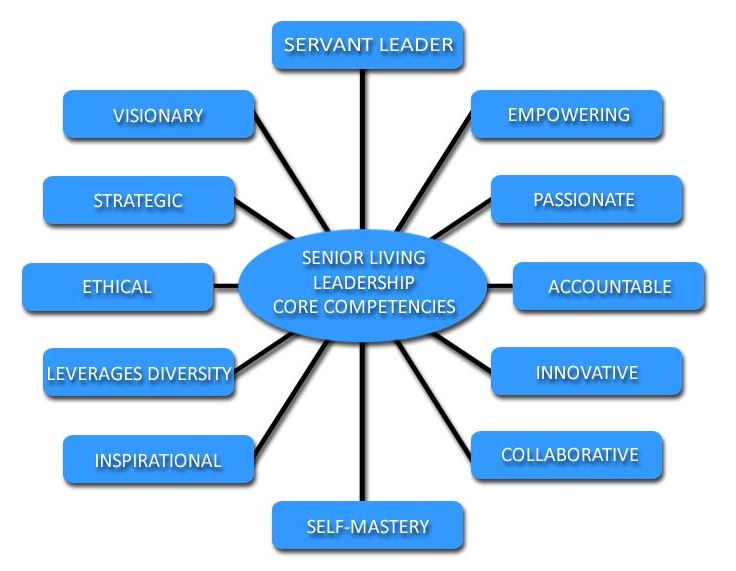 The Hidden Flaw In Behavioral Interview Questions We’ve all used behavioral interview questions—questions that ask job candidates to recount a past experience so we can assess their likely future performance. In theory, behavioral interview questions should work just fine (because past behavior is usually a decent predictor of future behavior). But most interviewers ask behavioral questions in a way that gives away the correct answer and thus ruins the question’s effectiveness. Here are some pretty typical behavioral interview questions: Tell me about a time when you adapted to a difficult situation and how you did it. Tell me about a time when you had to successfully balance competing priorities. Tell me about a time when you were bored on the job and what you did to make the job more interesting. Tell me about a time when you successfully persuaded someone to see things your way. You probably noticed that all of these questions ask the candidate to recount a time when they ‘successfully’ did something. The candidate is asked about times they adapted to a difficult situation, balanced competing priorities, made their job more interesting and successfully persuaded someone. And that leads us to the flaw in these questions. The flaw in behavioral interview questions These behavioral interview questions make very clear that the candidate is supposed to share a success story about adapting, balancing, persuading, etc. No candidate in their right mind would answer these questions by saying “I’m terrible at persuading people, and my boss is a jerk who never listens to me anyway.” Or “I’m constantly overwhelmed by competing priorities, and I can’t live like that.” These questions give away the right answers; cuing candidates to share success stories and avoid examples of failure. But how are interviewers supposed to tell good from bad candidates if everyone shares only success stories? Wouldn’t you rather change the question so that candidates feel free to tell you about all the times they couldn’t balance competing priorities? Or failed to persuade people? Or couldn’t adapt to a difficult situation? Let’s take the question “Tell me about a time when you were bored on the job and what you did to make the job more interesting.” Because the question gives away the correct answer (talk about going from bored to interested), anyone who answers is going to say something like “here’s what I did to make the job the more interesting, and I grew professionally, and I was so enriched, etc.” But now, imagine that you tweaked the question to not divulge the answer and you asked “Could you tell me about a time when you were bored on the job?” Because you’re not giving away the correct answer, you’re going to hear a wide range of responses. Some candidates (people who are ‘problem bringers’ in their current job) are going to say things like “OMG, that job was sooo boring” and “I couldn’t wait to quit” and “I was bored, but hey, I needed the money.” Answers like that are a great gift because they immediately tell you not to hire that candidate. And those answers make your job as interviewer much easier because they help you weed-out the weaker candidates. By contrast, people who are ‘problem solvers’ in their current jobs will have success stories that they’ll happily share. Their answers will highlight successes with details, context, evidence of deep thinking, and much more. And because you will have culled out the poor candidates, these potential star candidates will be that much easier to identify. When I wrote Hiring for Attitude, my research found that up to 50-60% of candidates will give you answers about failures rather than successes when the interview question doesn’t directly divulge the correct answer. In essence, half of candidates could be ‘problem bringers’ rather than ‘problem solvers.’ While that’s probably bad for society, it makes your job as an interviewer much easier when half of all candidates self-identify as having a subpar attitude. How to fix behavioral interview questions The good news is that the problematic interview questions we’ve been discussing are fixable (as are most behavioral interview questions). The first big fix is to replace loaded words (like adapt, successfully, balance, persuade) with less presumptuous language. For instance, instead of asking candidates about when they ‘balanced’ competing priorities, we should ask them about when they ‘faced’ competing priorities. Instead of asking about when they ‘adapted’ to a difficult situation, we should ask about when they ‘faced’ a difficult situation. The second big fix is to eliminate leading phrases like “tell me how you did it.” We want to ask questions that are so open-ended that candidates feel comfortable telling us when they did not take any action. Again, we want to let them self-identify as ‘problem bringers’ rather than ‘problem solvers.’ Here are some examples of how we could fix those interview questions… ORIGINAL: Tell me about a time when you adapted to a difficult situation and how you did it. CORRECTED: Could you tell me about a time when you faced a difficult situation? ORIGINAL: Tell me about a time when you had to successfully balance competing priorities. CORRECTED: Could you tell me about a time when you faced competing priorities? ORIGINAL: Tell me about a time when you were bored on the job and what you did to make the job more interesting. CORRECTED: Could you tell me about a time when you were bored on the job? ORIGINAL: Tell me about a time when you successfully persuaded someone to see things your way. CORRECTED: Could you tell me about a time when people didn’t see things your way? Notice how each of the corrected questions doesn’t divulge the correct answer? The corrected questions allow candidates to share failures or successes, and in doing so, allow candidates to reveal their true attitudes. You probably also noticed that my corrected questions are a bit more difficult for candidates to answer. And that’s intentional. Your job as interviewer is not to help candidates answer your questions. While leaders generally want to help people succeed, this is one occasion where you have to sit back and allow them to fail (i.e. give really bad answers). I know it seems harsh, but it’s much better to let them fail in an interview than to hire them and watch them fail on the job. Source: Mark Murphy, Forbes 12/03/2014 A Market Ripe For Investment
Senior living is booming and, as our nation sees a growing population of seniors living longer lives and seeking more active lifestyles, demand for senior living will continue to increase. • Occupancy rates in senior living communities are nearly 90 percent. • There are roughly 10,000 senior living communities of 25 apartments or more, charging market rates, currently operating in the United States. • Increasing demand is both spurring growth in new construction and investment in existing properties. • Senior living companies are investing in long-term infrastructure as well as day-to-day products and services that further differentiate their communities. Source: ARGENTUM and the NIC Investment Guide; Investing in Seniors Housing & Care Properties, Second Edition 8 Questions for a Great Leader
Are you a good leader? How do you know? Review this quick leadership checklist to see how you measure up against characteristics of great leaders.
|
Senior Living Recruiting is what we do.AuthorLM Hurley & Associates Executive Recruiting Archives
October 2023
Categories |


